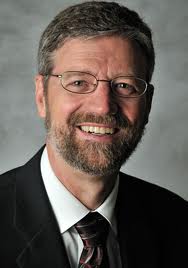I spent the third week in May near Basel, Switzerland, participating at the General Council of the Mennonite World Conference (MWC). It was the first meeting planned by Cesar Garcia, the new General Secretary. The Council brings together representatives of 101 member conferences in some 60 nations. It has become the primary means by which Anabaptists from around the world can carry on a conversation with each other. Mennonite Church USA is the one of the largest partners in this world alliance of Anabaptist churches.
I deeply value our connection with Mennonite World Conference. It reflects the growing diversity of our Anabaptist faith, an integral part of the spread of Christianity into all parts of the globe. The impulse of a century of Christian mission has produced results beyond our imagination. As the colonial era faded and countries gained independence, so have the churches. The Mennonite World Conference assemblies in Calcutta, India (1997), Bulawayo, Zimbabwe (2003), and Asuncion, Paraguay (2009) show the ability of the church in the “majority world” to host large gatherings.
MWC reminds us in a concrete way that the center of world Christianity has shifted from the northern hemisphere to the south. Cesar’s appointment and the move of the main office to Bogota, Colombia both reflects the present reality and points toward the foreseen future. As the church grows in the Southern hemisphere, so will the power to shape the church and its decisions.
During one session of the conference, participants were given opportunity to share prayer requests with the whole council. One after another, delegates from the “majority world” spoke of the extreme difficulties their churches faced in their environments. Several told about the deleterious effects of global climate change, with its accompanying drought and shortage of crops. Others spoke of religious persecution, with church buildings being burned and members being killed. Still others spoke of sickness and family distress. While we in Mennonite Church USA often struggle in our churches, the MWC reminds us that our difficulties often pale in comparison to the obstacles faced by many others. In times of distress, God calls us to demonstrate the koinonia that Jesus envisioned for his church, a oneness which demonstrates that “we are not alone.”

Young adult representatives at the assembly
As part of the program, delegates to General Council toured historic sites in and around Basel and Zurich. I was moved to watch delegates from various nations contemplate the sites of the first adult baptisms and the martyrdom of Felix Mantz. Several expressed deep pleasure at seeing the sites they had only heard described in teaching sessions. They viewed these events through the lens of people who also have suffered, and suffer still, for their profession of faith. Thus they felt a unique affinity with these sites, even though they are not connected their by historic family ties.
Mennonite World Conference invites every member church (national conference) to give their “Fair Share” of funds to support MWC. The amount each “denomination” is invited to give is calculated by a complex mathematical formula based on country’s economy and the number of members in the church. Because of our nation’s wealth, our share as Mennonite Church USA is far larger than that of any other church, and well over 25% of the whole. This calculation serves as a sober reminder of our stewardship in a world that enjoys relatively little of the wealth and privilege that we so readily take for granted. I urge individuals and congregations in Mennonite Church USA to give generously to the Global Sharing Fund, a pool of resources that can be distributed to members churches in need around the globe. Just as we give to the fund, so we also receive the blessing of participation in body that witnesses to the power of the gospel to change lives.

Delegates and other attendees at MWC
I left the conference with a renewed commitment to work for the unity and growth of our world family of faith, and to share the resources of Mennonite Church USA with our brothers and sisters in all parts of the globe.


